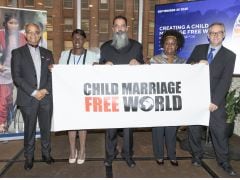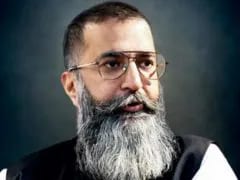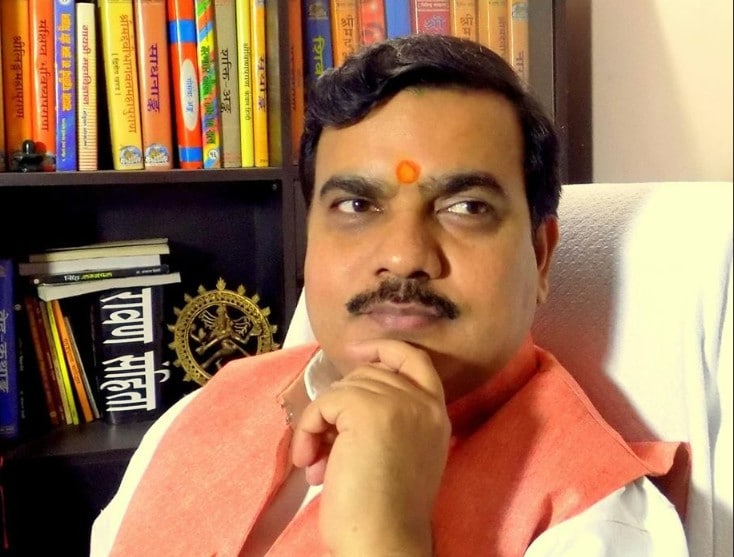- Home/
- From India To UNGA: Just Rights for Children's Blueprint To End Child Marriage Globally
From India To UNGA: Just Rights for Children's Blueprint To End Child Marriage Globally
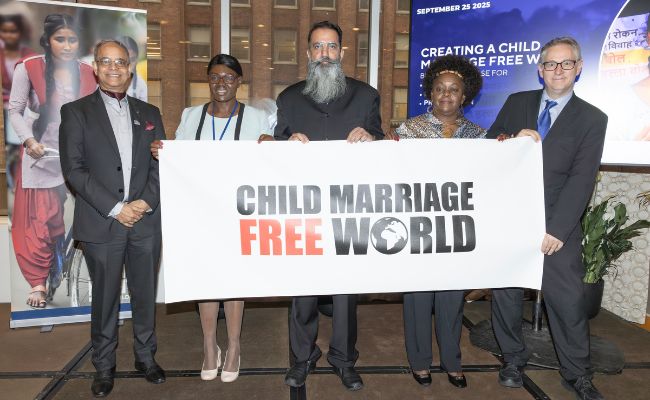
New Delhi: At a high-level side event during the United Nations General Assembly (UNGA) in New York on September 25, an urgent global call was made to end child marriage. Leading this call was Bhuwan Ribhu, Child Rights Activist and Founder, Just Rights for Children (JRC).
JRC organised a UNGA side event along with the Office of H.E. Dr. Fatima Maada Bio, First Lady of the Republic of Sierra Leone and President of OAFLAD, the Permanent Mission of Sierra Leone and the Government of Kenya, in partnership with the World Jurist Association and Jurists for Children Worldwide, to chart a course toward a child marriage free world.
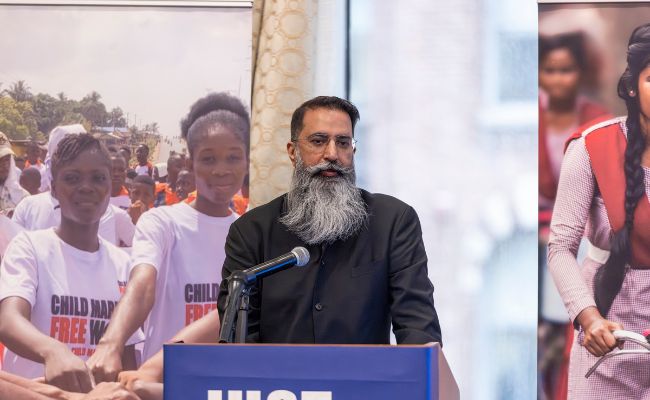
At the event, Ribhu called India's approach as a model the world can follow. He underscored why the UNGA platform is critical: as a global decision-making body, it enables countries to commit politically and legally to ending child marriage by 2030, consistent with Sustainable Development Goal 5.3. Ribhu also highlighted how enforcing the rule of law is essential - awareness alone is insufficient without robust prosecution to deter offenders.
JRC, active in India, Nepal, Kenya, and the US, is building the world's largest civil society focused on advancing child protection through legal reform, community engagement, and survivor-led strategies.
Central to their approach is the 3Ps model: Prevention before protection, protection before prosecution, and prosecution to create deterrence. This model is implemented through the organisation's comprehensive operational framework, PICKET - covering policy, institutions, capacity-building, knowledge, economics, and technology - to create an ecosystem where legal enforcement and social action work in unison.
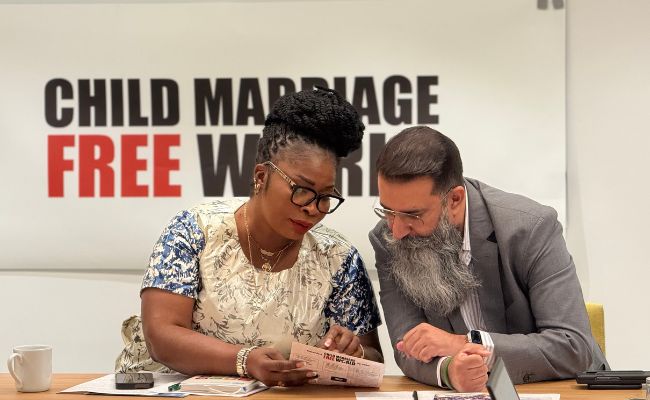
Clear Impact
Recent findings from the ‘Tipping Point to Zero: Evidence Towards a Child Marriage Free India' report by the Centre for Legal Action and Behaviour Change (C-LAB), a JRC partner, reveal striking progress. Over the past three years, child marriage rates in India have fallen by 69 per cent for girls and 72 per cent for boys, with notable state-level achievements: Assam (84 per cent decline), Maharashtra, Bihar (70 per cent each), Rajasthan (66 per cent), and Karnataka (55 per cent). Awareness of the government's Bal Vivah Mukt Bharat campaign reached 99 per cent of respondents.
A look at Just Rights for Children's transformative journey:
- More than 400,000 child marriages were prevented or stopped.
- Over 109,000 children were rescued from trafficking and forced labor.
- More than 74,000 cases filed against traffickers.
- Support provided to 32,000 survivors of sexual abuse.
- National prevalence of child marriage reduced from 24 per cent to 15 per cent.
These results demonstrate the power of coordinated legal enforcement combined with grassroots mobilisation to generate sustainable change.
Survivor-Led Leadership And Global Cooperation
The UNGA side - event showcased survivor voices shaping the global agenda, emphasising lived experience as integral to policy and enforcement strategies. JRC engaged in sustained dialogues with survivors before and during UNGA to ensure their leadership in global calls to action. Co-host countries Sierra Leone and Kenya presented their commendable child protection efforts, reinforcing that multi-country collaboration underpins successful eradication of child marriage.
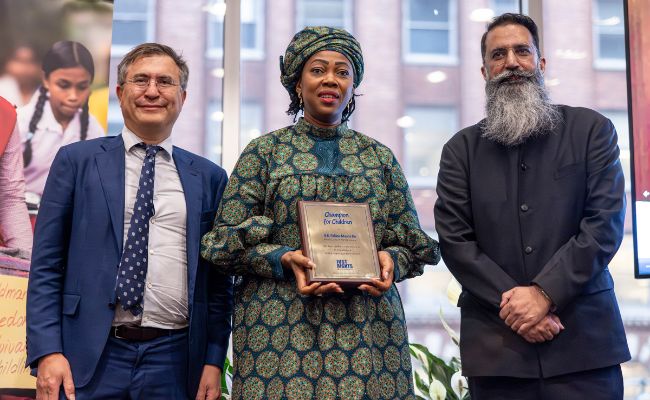
Why Legal Enforcement Matters?
Bhuwan Ribhu stressed the centrality of the rule of law in ending child marriage.
Deterrence is not about harsher punishments alone but certainty that offenders will be held accountable.
He highlighted that arrests and FIR registrations have changed social norms around child marriage, transforming it from a tolerated practice into a punishable crime. Faith leaders' commitment - over 300,000 pledging not to sanction child marriages - illustrates the critical role of cultural influencers in prevention.
The Child Marriage Free World Initiative
Building on India's success, the organisation launched the Child Marriage Free World initiative at the General Assembly, advocating for the worldwide adoption of India's blueprint. This initiative reframes child marriage as child rape, demanding legal reform and community action rooted in survivor leadership to ensure justice everywhere. As Bhuwan Ribhu warned,
While we speak, 1,800 girls globally are forced into marriage daily. The world must follow India's example: the proof is here, the model works.
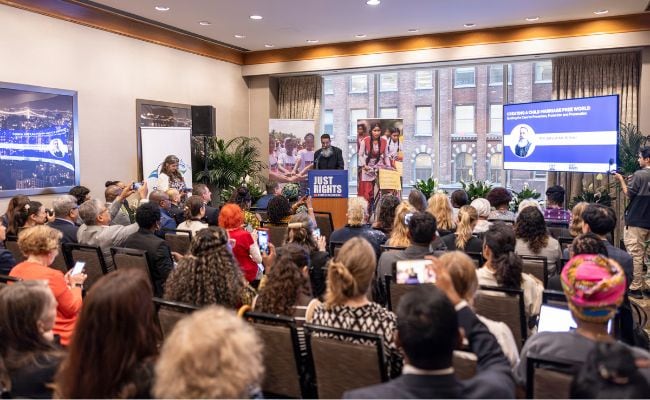
Toward 2030 And Beyond
With over 500,000 children supported and systematic interventions preventing an estimated 18 child marriages per hour, India is exemplifying how collective will, the rule of law, and partnership can overcome deep-rooted social challenges. The global community is urged to replicate this success and join the movement for a child marriage free world before 2030. As Ribhu said,
Together, in this generation, we will create a world just for our children, free from child marriage and abuse.
Stories
- Team NDTV | Thursday December 04, 2025 , New Delhi
Ministry Of Women & Child Development Launches 100-Day Campaign To End Child Marriage By 2030
- Devyani Madaik | Saturday September 27, 2025
JRC organised a high-level UNGA side event along with other partners, to chart a course toward a child marriage free world
- Bhuwan Ribhu | Monday August 18, 2025
Lowering the age of consent risks weakening child protection, and instead India must focus on fully enforcing POCSO with stronger preventive measures
- Bhuwan Ribhu | Monday August 18, 2025
Human trafficking is the second-largest crime in the world. It generates $150 billion a year, according to global estimates
- NDTV | Monday July 28, 2025
India fights against child labour through strong legal action, community support, and the PICKET strategy
- Rachna Tyagi | Wednesday July 30, 2025
India's POCSO victims face delayed, inadequate compensation; urgent, uniform national schemes are vital for justice and survivor rehabilitation
- Rachna Tyagi | Monday June 16, 2025
AI-generated abusive content like deep-fake manipulation and other emerging forms like Webcam Child Sex Tourism (WCST) are on the rise
- Devyani Madaik | Friday July 25, 2025
For over two decades, Bhuwan Ribhu's legal fight against child exploitation earned him the World Jurist Association's Medal of Honour
- Bhuwan Ribhu | Wednesday July 30, 2025
Auspicious Akshaya Tritiya, meant for prosperity, sadly marks child marriages, a tragic misfortune for our daughters
- Pandit Deepak Dubey | Wednesday April 30, 2025 , नई दिल्ली
कन्या दान को पुण्य कार्य इसलिए माना जाता है क्योंकि पिता से लगाव होता है. यानी इसमें पिता स्नेह का त्याग करता है. इसका बाल विवाह से कहीं लेना-देना नहीं है. हालांकि अभी भी कुछ जगहों पर बाल विवाह की कुप्रथाएं हैं. बाल विवाह अभिशाप है.




